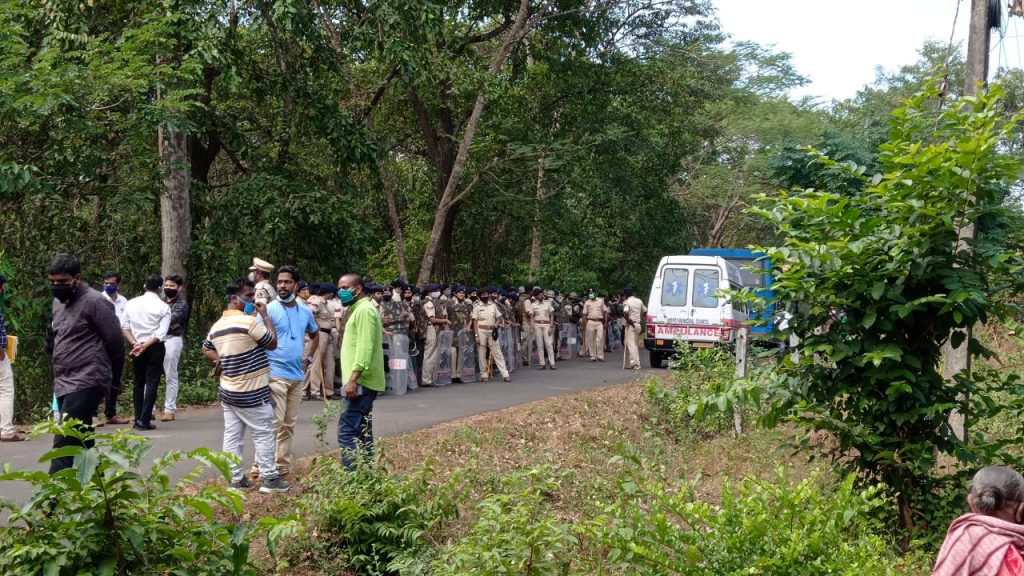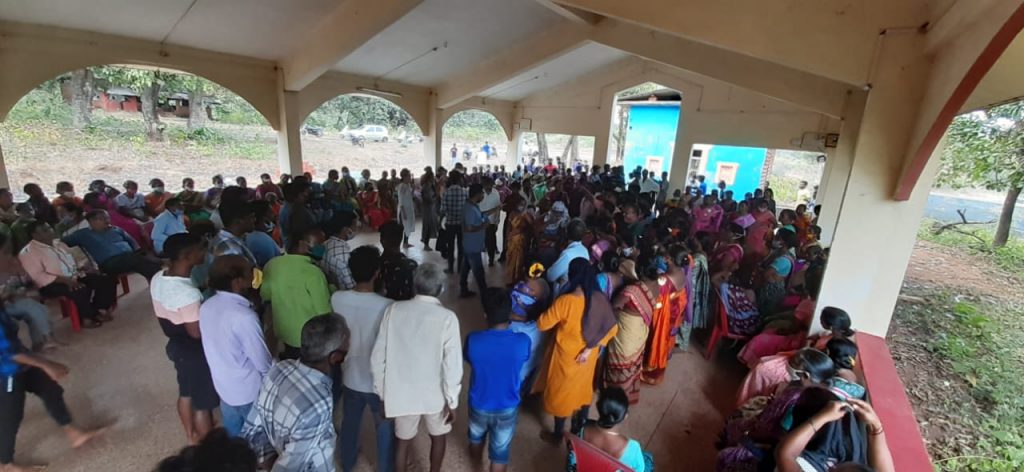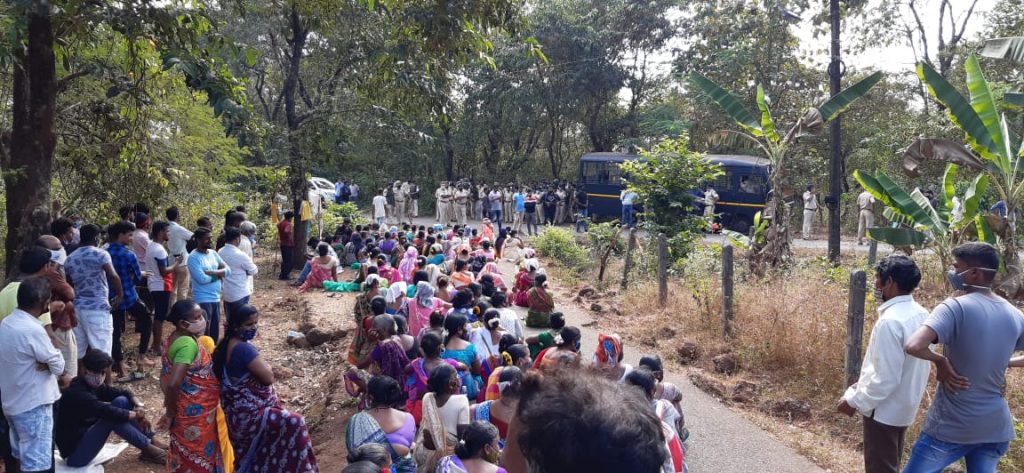"Demarcation done without our consent," say tribals as fresh violence erupts at IIT-Goa land site

By Sutapa Baksi & Rishabh Jain, TwoCircles.net
Goa: The conflict associated with the IIT Goa project that encompasses the village of Shel-Melauli in the Sattara district of Goa has been given fresh fire as demarcation work was set to begin on the morning of January 5.
A couple hundred villagers sat blocking roadways as the govt deployed a police force of upwards of 500 personnel for the task of surveying approximately 10 lakh sq km of the disputed tribal land. The latter were equipped for the ensuing trouble with tear gas, riot gears etc., and were prepared to lathi charge the villagers if such requirement arose.
Nikita Naik, who was one of the villagers protesting at the site, said, “The demarcation was done without our consent. We don’t recognize such process.” She also believed that the villagers had been protesting peacefully till now, but the time has come that they will need to be more aggressive, to save our land.
[caption id="attachment_440594" align="alignnone" width="696"] Photo credit: Diana[/caption]
Photo credit: Diana[/caption]
The villagers managed to defer the land survey till 1 p.m. around which time the police force moved to survey the other end of the stretch adjacent to the Jhamli temple. Soon afterward, the officers were driven out of the site as the villagers rushed to the area.
However, the demarcation was completed and clashes ensued between the villagers and policemen after the land survey officials had vacated the site. The situation only grew more tense.
On the morning of January 6, several policemen were injured as a result of stone pelting by villagers when the former attempted to traverse the forest routes to the village. Their arrival was anticipated and residents gathered in wait. Some residents were reported to have attacked the policemen physically.
Clashes continued throughout the day as villagers pelted stones and set police shields on fire. Several people on both sides were injured and rushed to the community health centre. Police Inspector (PI) Sagar Ekoskar is being alleged to have mistreated a woman who was lying on the ground in protest.
[caption id="attachment_440592" align="alignnone" width="696"] Photo credit: Diana[/caption]
Photo credit: Diana[/caption]
A villager named Unati Melekar said, “The clash started when police started moving forward towards the villagers lying on the ground. Valpoi PI Sagar Ekoskar stamped on the chest of a woman.”
Following this incident, hundreds of villagers gathered outside the Valpoi police station, filing an FIR and demanding the inspector’s suspension. The villagers have also demanded that the CM should visit Valpoi and hear the woes of the residents. They have pledged to continue their protest until their demands are met.
The most recent response from the CM with regards to these events has been, “Shel-Melauli villagers are at fault, they have taken law and order in [their] own hands, everything will be done as per law; Govt will go ahead with the IIT project.”
When protests began last Sunday over the transfer of land and the setting up of a police outpost in Melauli, the CM had commented, “I visited the village and interacted with the people. I heard their demand and didn't decline them. I have assured them that I will not do injustice to the people of Melauli. But if we agree that government land belongs to some people, then there won’t be any land left with the government.”
The Goa Cabinet in August last year had cleared a proposal for allocating 10 lakh sq metres of land for the IIT-Goa campus in the Sattari subdistrict’s Guleli panchayat in North Goa. The ownership of much of this land was contested by local and tribal communities of Shel and Melauli villages who had lived and worked on said lands for over 80 years.
The livelihood of these tribals depended primarily on cashew plantations and forest produce. However, the disputed community lands were not registered in their name.
Shubham Shivolkar, whose family has been involved in cashew farming for years, said “the government announced the project during the lockdown and no correspondence was made with the residents of the village. We came to know about it through newspaper.”
Following protests by villagers that a number of ancient temples fall within the proposed land area, the plan was tweaked to exclude 45,000 sq metres of ground containing the temples.
However, the more practical and essentially more tumultuous repercussions of redirecting vast stretches of fertile agricultural land, as voiced by the farmers and residents, remained largely ignored.
Mohammad Shakeel, the Registrar in-charge of IIT Goa had said on this issue, “Currently we are functioning from within the space given to us by the Goa engineering college. We know that IIT is the premier-most institution of higher education in this country, and we often receive researchers and noble laureates from various countries.”
[caption id="attachment_440591" align="alignnone" width="696"] Photo credit: Diana[/caption]
Photo credit: Diana[/caption]
For these reasons, Shakeel stresses on the need for a proper space where they are able to function to the best of their ability and requirements. He says that it is the job of the government to allocate land for this purpose and that they will build the IIT wherever they get the land.
Despite being a small state of just over three thousand square kilometres, Goa has the highest per capita GDP in comparison to all other Indian states - twice that of the nation as a whole. But resistance can be seen at multiple locations as the state tries to accommodate ground-breaking infrastructure projects to enrich the grandeur of the future on the backs of little and local communities.
While governments naturally push for big development ideas, local residents resist the tides of irreversible change for as long as they can hold their ground. In the words of American economist and social theorist, Thomas Sowell, "The most basic question is not what is best but who shall decide what is best.”
